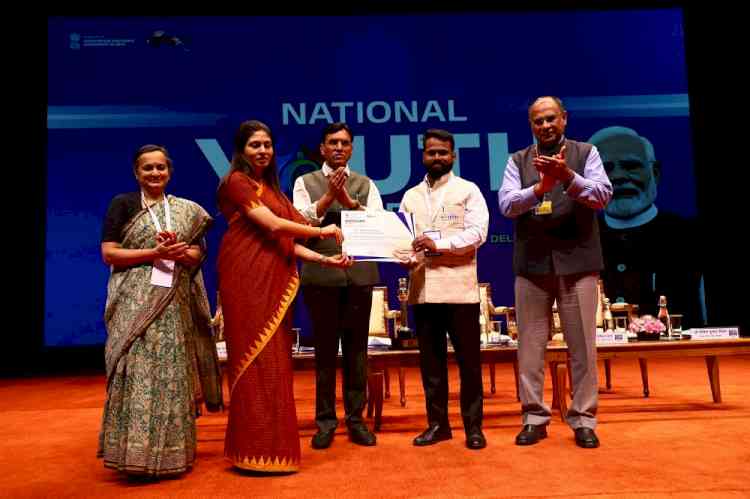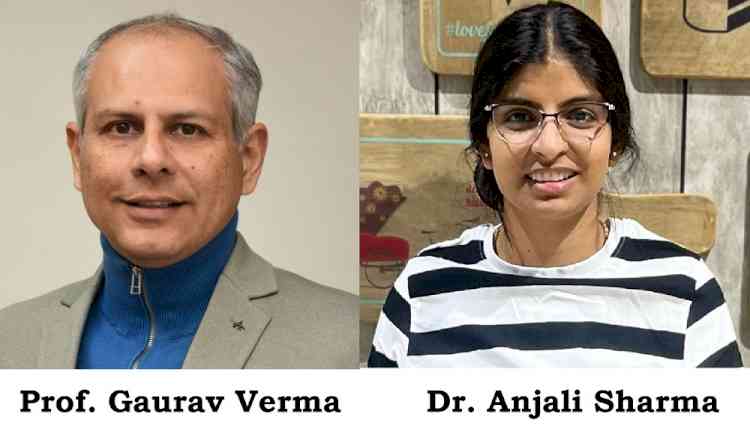Assam student on a walkathon to demand chapter on N-E in NCERT textbooks
After cycling all the way to Ladakh, a student of the National Institute of Technology (NIT), Silchar in southern Assam, has embarked on a walkathon to press for a chapter on the traditions, culture and history of the northeast in NCERT textbooks.

By Sujit Chakraborty
Silchar/Agartala, July 10 (IANS) After cycling all the way to Ladakh, a student of the National Institute of Technology (NIT), Silchar in southern Assam, has embarked on a walkathon to press for a chapter on the traditions, culture and history of the northeast in NCERT textbooks.
Rajon Das, a final year electrical student at the NIT, felt that most people outside the northeastern region, comprising eight states, do not know the tradition, life-style, food habit, culture and history of northeast, creating numerous problems including violent incidents in different parts of the country, especially in the national capital.
“In August-September last year, I travelled up to Ladakh on a cycle via many states, including Delhi, to apprise the people about the northeastern region.
"I started my second mission from the famous Tripura Sundari Temple in Udaipur (southern Tripura) on May 22, and after visiting five states of the region (Tripura, Assam, Meghalaya, Nagaland and Arunachal Pradesh), I will now return to my home district Karimganj (in southern Assam),” Das told IANS over phone from Tawang in Arunachal Pradesh.
He said that during the next vacation of NIT, he would visit Manipur, Nagaland and Sikkim with a similar mission.
“Unofficially, the officials of the NCERT (National Council of Educational Research and Training) told me that it is possible to include chapters in the curriculum, but it needs a policy decision by the government. I will meet the officials and higher-ups of the NCERT,” the 25-year-old engineering student said.
He said that during his current journey, he sometimes stayed at the homes of the local people, and sometimes in tent which he is carrying during his trip.
“People supported my mission overwhelmingly and expressed their anguish that even after 75 years of Independence, most people outside the northeastern region know very little about the people, history and geography of this beautiful region.”
Inclusion of a chapter on the northeast in the NCERT curriculum would not only familiarise students of other states about the northeastern region, but also facilitate the region’s growth and development along with ethnic and communal harmony, he pointed out.
The northeastern region, which presents a complex linguistic mosaic and has jealously preserved over 200 dialects, is home to 45.58 million people (2011 Census). The indigenous tribes constitute around 28 per cent of the population and they mostly speak in their mother tongue or their indigenous language.
Besides a large number of non-tribals belonging to Hindu, Muslim and Christian communities, a reasonable portion of indigenous and Hindi-speaking people live in the region with different life-styles, cultures, traditions and languages.
Occasionally, violent and unfortunate incidents occurr in Delhi, Bengaluru and several other places of India due to the misunderstandings with regard to the Mongoloid face of the people from the northeast.
The Chief Ministers of Mizoram, Nagaland and Meghalaya, on a number of occasions, had to intervene in the unsavoury incidents involving the indigenous people from the northeastern region.
Meanwhile, the Assam government last month requested all state governments in the country to include a chapter in the academic curriculum on Bir Lachit Barphukan, the 17th century war hero from Assam.
Assam Chief Minister Himanta Biswa Sarma said: “Assam government is committed to undo the errors of the past and present our true history to the nation. We've written to all the state governments to include a chapter on Bir Lachit Barphukan."
Barphukan was a celebrated general of the Ahom dynasty who defeated Aurangzeb's army in the historic Saraighat battle and that defeat proved to be the final nail in the coffin of the expansionist policies of Mughals in northeast India.
In memory of Barphukan, the state government is setting up the Alaboi battle war memorial in Kamrup district and constructing the Lachit Barphukan Maidan in Jorhat.
At a function in Guwahati in February, President Ram Nath Kovind had inaugurated the year-long celebrations of the 400th birth anniversary of Lachit Barphukan.
(Sujit Chakraborty can be contacted at [email protected])


 IANS
IANS 








